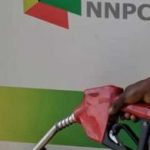Despite the recent reduction in wholesale petrol prices by Dangote Refinery, Nigerian drivers might not experience cheaper fuel at the pump right away, according to the Petroleum Products Retail Outlet Owners Association of Nigeria (PETROAN). The association explained that due to existing stock purchased at a higher price, filling stations will not be able to reflect the price reduction immediately.
Billy Gillis-Harris, the leader of PETROAN, made this statement during an interview on Arise TV on Saturday, following the announcement by Dangote Refinery that it had reduced its wholesale petrol price from N950 to N890 per litre. While Gillis-Harris acknowledged that this price reduction is positive news, he emphasized that fuel stations are still selling the stock they bought before the price change, which means the effect of the price drop won’t be immediately visible at retail outlets.
“You can’t see it immediately, because we’ve already bought products,” Gillis-Harris explained. “We’ve already purchased different kinds of products that are in our retail outlets now at the price which it was prior to the change this evening.” This statement clarified that since retail stations had already bought petrol at the higher price of N950 per litre, they will continue to sell it at that price until their stock runs out and they can replenish it with new stock purchased at the reduced price.
Gillis-Harris further elaborated on the financial risks involved in such situations. “So the moment we lose N60 in that transaction, we are out of business,” he said. “So we have to keep that product.” This comment highlighted the challenges retail outlets face in absorbing the cost difference and the importance of ensuring that they do not sell fuel at a loss. As such, the price drop will only be reflected in retail outlets once the existing stock at the higher price is sold off.
However, Gillis-Harris emphasized that the situation would improve once new supplies from Dangote Refinery start arriving. “But the only thing that we will advocate is that any one of us that starts buying products from Dangote at that price from tomorrow, Sunday, should endeavour to reflect that price in their retail outlets,” he said. He urged retailers to ensure that when they start buying fresh stock at the reduced price, they immediately pass on the benefit to consumers by lowering the retail prices.
PETROAN is also working closely with both Dangote Refinery and MRS, a major fuel retailer, to help ensure uniform pricing across the country. According to Gillis-Harris, this collaboration will help streamline the distribution process, ensuring that petrol stations in all regions are able to sell fuel at similar prices, which could contribute to stability in the market. He believes this partnership will also help ensure that fuel is readily available across Nigeria, eliminating the fuel shortages that have plagued the country in recent times.
“PETROAN is now working closely with both Dangote refinery and MRS, a major retailer. So that is going to really help also in making sure that our retail outlets sell products at a uniform price,” Gillis-Harris stated. He added that this collaboration is essential for maintaining an equitable fuel distribution system in Nigeria, ensuring that fuel is available not just in the big cities but in even the most remote areas of the country.
In addition to addressing the immediate challenges of fuel pricing and distribution, Gillis-Harris pointed to a broader trend that could have long-term benefits for the country’s fuel supply. He noted that Nigeria is improving in terms of domestic fuel production, which could reduce the country’s reliance on fuel imports. As local refineries begin to operate more effectively, Nigeria may be able to produce enough fuel locally to meet its domestic needs, potentially lowering the overall cost of fuel in the long run and providing a more stable fuel supply.
On the same day as the interview, PETROAN announced that its members had started receiving fuel supplies from two Nigerian refineries, located in Port Harcourt and Warri. This is a significant step toward reducing Nigeria’s dependence on imported fuel and ensuring that fuel is sourced from local facilities. According to Gillis-Harris, the availability of fuel from local refineries will help improve the distribution network and ensure that Nigerian consumers have access to a more reliable supply of fuel, particularly in areas that have historically experienced shortages.
Overall, while the immediate effect of Dangote Refinery’s price cut may not be felt at the pump, the collaboration between PETROAN, Dangote, and MRS, as well as the increasing availability of locally sourced fuel, are expected to contribute to more stable fuel prices and greater supply availability across Nigeria. The move is seen as a step forward in improving the country’s fuel market and reducing reliance on imports, which has long been a challenge for Nigeria’s economy.










